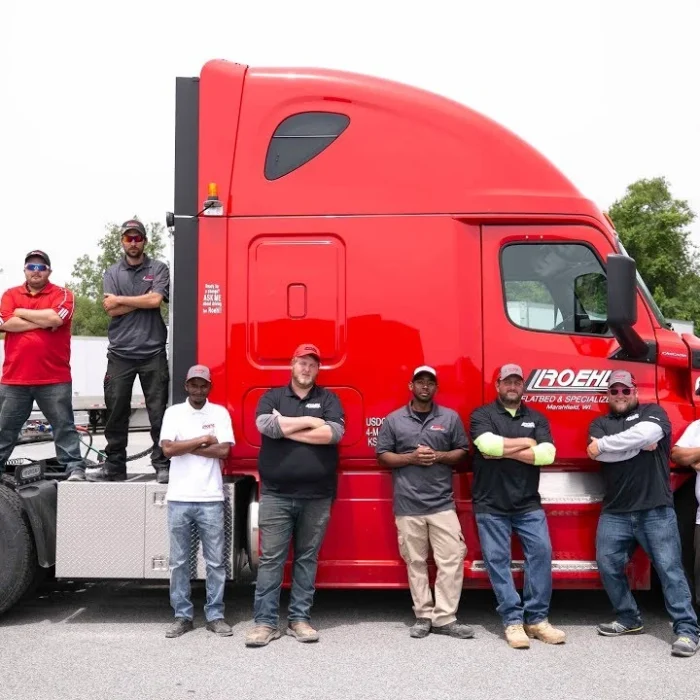The transportation sector is witnessing a significant shift towards electric vehicles, including heavy-duty trucks. Electric semi trucks, a relatively new addition to the world of electric vehicles, are gaining traction due to their potential to revolutionize the trucking industry.
This article will delve into the exciting world of electric semi trucks, electric trucks, and hydrogen fuel cell trucks, highlighting their advantages, challenges, and future prospects.
What is an Electric Semi Truck?
An electric semi truck is a large, long-haul vehicle powered by electricity, eliminating the need for diesel fuel.
These trucks belong to the family of battery-powered electric vehicles, which are known for producing zero tailpipe emissions. In recent years, electric semi trucks have emerged as an environmentally friendly alternative to traditional diesel-powered heavy-duty trucks.
Leading Electric Semi Truck Models
Several manufacturers have developed electric semi truck models, including the Tesla Semi, Nikola Tre BEV, Freightliner eCascadia, and more. These models vary in terms of battery range, charging capabilities, and overall performance, catering to different needs within the trucking industry.
| Maker | Truck | Approximate Range |
|---|---|---|
| Tesla | Tesla Semi | 300 miles (Standard) / 500 miles (Long Range) |
| Nikola Motor Company | Nikola Tre BEV | Up to 300 miles |
| Daimler (Freightliner) | Freightliner eCascadia | Up to 250 miles |
| Volvo | Volvo VNR Electric | Up to 150 miles |
| Peterbilt | Peterbilt Model 579EV | Up to 150 miles |
| Kenworth | Kenworth T680E | Up to 150 miles |
| BYD | BYD 8TT | Up to 125 miles |
| Lion Electric | Lion8 | Up to 250 miles |
| Mack Trucks | Mack LR Electric | Up to 150 miles |
| Einride | Einride Pod | Up to 124 miles |
| Hyundai | Hyundai XCIENT Fuel Cell | Up to 248 miles |
| Rivian | Rivian R1T | Up to 400 miles |
| Ford | Ford F-150 Lightning | Up to 300 miles |
| Xos Trucks | Xos ET-One | Up to 300 miles |
| Tevva | Tevva Electric Range Extender | Up to 160 miles (electric) / 310 miles (with range extender) |
| Orange EV | Orange EV T-Series Electric Terminal Truck | Up to 24 hours of operation |
| Terberg | Terberg YT203-EV Electric Terminal Tractor | Up to 16 hours of operation |
| Atlis Motor Vehicles | Atlis XT | Up to 500 miles |
| Lordstown Motors | Lordstown Endurance | Up to 250 miles |
| Bollinger Motors | Bollinger B2 | Up to 200 miles |
Advantages of Electric Semi Trucks
Reduced Emissions
The primary benefit of electric semi trucks is their minimal environmental impact. By eliminating the need for diesel fuel, these trucks produce zero tailpipe emissions, significantly reducing their carbon footprint.
Lower Operating Costs
Electric semi trucks have lower operating costs than their diesel counterparts, primarily due to reduced maintenance requirements and lower fuel costs. Fewer moving parts in electric trucks result in less wear and tear, ultimately decreasing maintenance expenses.
Regenerative Braking
Electric semi trucks often feature regenerative braking systems, which capture and store energy generated during braking. This energy is then used to power the truck, increasing efficiency and reducing the strain on the battery.

Challenges of Electric Semi Trucks
Limited Range
One of the main challenges faced by electric semi trucks is their limited range compared to diesel trucks. Although battery technology is continually improving, electric semi trucks still have a shorter range than their diesel counterparts. This can limit their practicality for long-haul trucking.
Charging Infrastructure and Time
The charging infrastructure for electric semi trucks is still underdeveloped in many regions. The availability of truck stops with charging stations and the time required to charge the batteries can pose challenges for truck drivers and fleet operators, affecting the overall efficiency of their operations.

Battery Technologies and Innovations
Battery technology plays a critical role in the development and adoption of electric semi trucks. Advancements in energy density, charging speed, and overall battery performance are essential for improving the range and usability of electric semi trucks.
Companies like Tesla and General Motors are constantly working on innovations in battery technology to overcome current limitations and make electric semi trucks more competitive with diesel-powered trucks.
Impact on the Trucking Industry
The widespread adoption of electric semi trucks has the potential to transform the trucking industry. In addition to the environmental and operational benefits, electric semi trucks can also offer new business models and opportunities for companies in the sector. Fleet operators may adopt a more flexible approach to vehicle ownership, leasing, or renting trucks as needed, while benefiting from reduced maintenance and fuel costs.

Government Regulations and Incentives
Governments around the world are implementing regulations and incentives to promote the adoption of electric vehicles, including electric semi trucks. These policies often involve subsidies, tax breaks, and other financial incentives to offset the higher upfront costs of electric vehicles, making them more attractive to buyers.
The Future of Electric Semi Trucks
The future of electric semi trucks looks promising as technology continues to advance and the charging infrastructure expands.
As battery technology improves and costs decrease, electric semi trucks are expected to become increasingly competitive with diesel trucks in terms of range, performance, and overall cost of ownership.
This trend, coupled with growing environmental concerns and supportive government policies, is likely to drive significant growth in the adoption of electric semi trucks in the coming years.
Hydrogen Fuel Cell Trucks
Hydrogen fuel cell trucks represent another alternative to traditional diesel-powered semi trucks. These trucks utilize fuel cells to generate electricity, which then powers the vehicle. While not as prevalent as battery-powered electric trucks, hydrogen fuel cell trucks offer potential advantages such as faster refueling times and longer ranges.
Medium-Duty and Heavy-Duty Trucking Applications
Electric semi trucks are not just limited to heavy-duty trucking applications. Medium-duty trucks can also benefit from electric power, offering similar advantages such as reduced emissions and lower operating costs. As battery technology and charging infrastructure continue to improve, the market for electric medium-duty trucks is expected to grow alongside the demand for electric semi trucks.
The Role of Big Rigs in the Supply Chain
Electric semi trucks and big rigs play a crucial role in the supply chain, transporting goods across the country. As more companies prioritize sustainability, the adoption of electric trucks will likely accelerate, reducing the overall carbon footprint of the supply chain.
Tesla Semi and Other Industry Leaders
The Tesla Semi, one of the most anticipated electric semi trucks, has garnered significant attention for its advanced technology, long range, and impressive performance. Tesla’s commitment to developing electric semi trucks has inspired other industry leaders like Nikola and Freightliner to enter the market, further driving innovation and competition.
Charging Infrastructure Development and Expansion
The development and expansion of charging infrastructure are critical for the widespread adoption of electric semi trucks. Initiatives like California’s plans to install electric truck charging stations along major freight corridors will help facilitate the transition from diesel to electric trucks.
San Diego’s Commitment to Electric Trucking
Cities like San Diego are demonstrating their commitment to supporting electric trucking by incorporating electric semi trucks and other electric vehicles into their municipal fleets. As more cities follow suit, the demand for electric trucks will likely increase, driving further growth in the electric trucking industry.

Conclusion
Electric semi trucks represent a promising solution to the environmental and operational challenges facing the trucking industry.
As battery technology and charging infrastructure continue to improve, electric trucks, including the Tesla Semi, will become increasingly competitive with diesel trucks.
With supportive government policies, growing demand, and continued innovation, the future of electric semi trucks and the trucking industry as a whole looks bright.
FAQs
How do electric semi trucks compare to diesel trucks in terms of range?
Electric semi trucks currently have a shorter range compared to diesel trucks. However, as battery technology improves, the range gap is expected to narrow, making electric trucks more competitive for long-haul trucking.
What is the role of hydrogen fuel cell trucks in the trucking industry?
Hydrogen fuel cell trucks offer an alternative to battery-powered electric trucks, with potential advantages such as faster refueling times and longer ranges. They represent another option for companies looking to transition to more sustainable trucking solutions.
How are cities like San Diego supporting the adoption of electric trucks?
Cities like San Diego are incorporating electric trucks into their municipal fleets, demonstrating their commitment to electric trucking and helping to drive demand for electric semi trucks and other electric vehicles.
What is the significance of Tesla Semi in the electric semi truck market?
The Tesla Semi is one of the most anticipated electric semi trucks, known for its advanced technology, long range, and impressive performance. Tesla’s commitment to developing electric trucks has inspired other industry leaders to enter the market, further driving innovation and competition.







